The dual diagnosis program at Port St. Lucie Hospital is specially created to serve patients who experience both mental health and addiction struggles. If you have been struggling with addiction as a result of mental health concerns—or vice versa—our dual diagnosis treatment facility has all of the resources you need to recover.
Contents
At Port St. Lucie Hospital, we recognize that many of our patients who need addiction treatment also struggle with untreated or undiagnosed mental health disorders. There is a close relationship between mental health and addiction. In fact, approximately half of people who have a substance use disorder also have at least one other mental illness.
One of the main reasons why addiction and mental health struggles are so closely related is because people often experience uncomfortable or painful symptoms of mental health conditions without receiving proper treatment. To block out the pain, people frequently turn to drugs or alcohol. However, using these substances only makes the mental health symptoms longer-lasting and more severe.
Additionally, treating both the addiction and mental health disorder is essential in ensuring a full recovery. If one is left untreated, you are much more likely to struggle in the future. This is why it is so important to find the right dual diagnosis treatment facility as the first step in your recovery journey.
Here, our dual diagnosis program serves patients ages 18 and over who fall into this category of having a substance use disorder as well as a mental illness. Some of the most common mental health conditions that we treat include:
When patients receive addiction treatment without addressing an underlying mental health condition, it is as though they are putting a bandage over a deep wound. Thus, the best treatment for dual diagnosis is to address the symptoms of mental illness that often accompany addiction.
Making the decision to get dual diagnosis treatment can be frightening. If you know that you need dual diagnosis treatment but you aren’t sure what that would look like, we’re here to walk you through it. Our team of mental health professionals are here to work with you to create a treatment plan for those who need dual diagnosis treatment.
Furthermore, we believe that your focus should remain on your health and recovery. In addition to offering arrangements for self-pay, we are proud to accept Medicare and most HMOs and PPOs in order for you to get the treatment you require without a heavy financial burden.
For many people, the first step in recovery begins with the assessment process to document each patient’s history with addiction and any suspected or diagnosed mental health conditions. After the assessment stage, you will have access to a custom treatment plan that will help you with the physical, mental, and emotional journey toward recovery.
Frequently, patients begin with a medical detox to ensure that they can safely engage in a dual diagnosis program. From there, you will have the opportunity to heal through a variety of treatment options, including:
In addition to these options that help you to heal, we also encourage your friends, family members, and peers to learn more about mental health and addiction alongside you in treatment. With the support system you will have the chance to create at Port St. Lucie Hospital, you will know that you are not alone in your recovery journey.
What Happens After Dual Diagnosis Rehab?
The length of time you spend with us in the dual diagnosis program depends on your specific recovery needs and goals. However, the goal with treatment is to give you the time you need to begin building upon important skills to keep you mentally well and sober long after you leave rehab.
Returning to your previous life after receiving intensive treatment can be quite challenging. This is why, in addition to the skills you will learn in the dual diagnosis program and the support systems you will create, we provide you with resources that will help you maintain long-lasting recovery.
The skills you learn in dual diagnosis treatment will be there to help you whenever you face life stressors. With these resources, you will no longer need to turn to drugs or alcohol in times of crisis. Instead, you can use healthy coping mechanisms to work through your symptoms and move forward past any challenges.
We’re Ready to Help
If you are looking for dual diagnosis residential treatment centers in Florida, rest assured that the staff at Port St. Lucie Hospital is here to help. From support groups to individual therapy treatment options, we are here to fight the battle against mental illness and substance abuse right by your side. Reach out to us online or call us at (772) 335-0400 to take that first step toward recovery today.
A co-occurring disorder is when you experience a mental health condition alongside another. If you have depression and anxiety, these would be co-occurring disorders. Co-occurring disorders can be challenging to diagnose and end up putting people at a greater risk for developing addiction struggles as well.
Having an addiction to drugs or alcohol is actually a mental illness. This means that addiction is something that greatly impacts your day-to-day life. Additionally, the fact that addiction is a mental health concern proves that it cannot go away on its own—instead, your ability to heal from addiction and any other mental health concerns relies on professional treatment.
When it comes to mental health, dual diagnosis indicates that there is a mental health concern on top of a substance use disorder. Dual diagnosis is meant to help people who need treatment for mental health conditions as well as addiction.
Simply put, the dual diagnosis definition is that a patient has two or more diagnoses that require treatment. For example, struggling with addiction as well as anxiety would be a dual disorder. With dual diagnosis treatment, you will have the opportunity to heal from both conditions in addition to learning valuable skills to use if you experience symptoms in the future.























